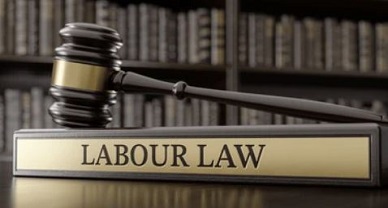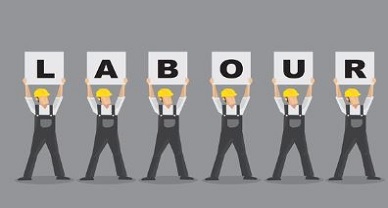Status of Professional Athletes under Indian Labour Laws
Status of Sportspersons in India
The sports in India have gained significant popularity in recent years, with several athletes making their mark in national and international competitions; however the status of sportspersons in India in light of Labour laws has not received much attention and thus their salaries are not governed by the Labour law, but by a complex set of regulations. Sportspersons in India are usually employed by sports organizations, including clubs, associations, and federations. These organizations sign contracts with sportspersons, which govern the terms and conditions of their employment, including their salaries, bonuses, and other benefits. These contracts are typically signed for a specific period, and the terms may vary depending on the sport and the athlete’s performance.
The salaries of sportspersons in India are determined based on several factors, including their experience, skills, and performance. The Board of Control for Cricket in India (BCCI), for example, has a central contract system for its players, which categorizes players based on their experience and performance. The categories range from A+ to C, with each category receiving a different level of payments. Apart from basic salaries, sportspersons in India may also receive performance-based incentives, such as bonuses for winning matches or tournaments. The contracts may also include provisions for health insurance, travel allowances, and other benefits.
In conclusion, sportspersons in India are primarily employed by sports organizations, and their salaries are governed by contracts that outline the terms and conditions of their employment. While these contracts provide sportspersons with a stable source of income, issues such as lack of transparency and pay disparity need to be addressed to ensure fair treatment and compensation for all athletes.
Applicability of Labour Laws In Sports In India
“The organisational structure of Indian sports is shaped in a pyramid form and is hierarchal in nature, formed in a highly complex manner with the Indian Olympic Committee (hereinafter referred to as ‘IOC’) and the National Sports Federations (hereinafter referred to as ‘NSFs’) at the national level vis-à-vis the state and District federations respectively at the lower levels. Furthermore, various other actors such as the Sports Authority of India (hereinafter referred to as ‘SAI’) and the Ministry of Youth Affairs and Sports (hereinafter referred to as ‘MOYS’) play a key role in the industry. Amidst this complexity, it is important to understand the relationship of the players or sportspersons with these organisations and other key stakeholders.”[i]
However, it is quoted – “the primary problem is that of recognition of sportspersons as ‘employees’ within the purview of the applicable labour laws, insofar as employees are afforded better protection of the law – and, it could be difficult to ascertain whether the role of sportspersons is that of ‘employees’ or ‘independent contractors’. This problem gets worsened owing to the fact that all relationships in the sports industry are governed by contracts and these contracts are generally skewed against the players inasmuch as the sports organisations and other stakeholders tend to retain complete bargaining powers.”[ii]
Since, the sports doesn’t come within the definition of Industry, It becomes really difficult to categorize sportspersons as employees and workers of the association or federation they are part of. They are generally governed by the rules and laws of their association only through their contracts. There exists no Employer-Employee relationship between a player and the team or association they belong to. However, there are various judgments which support the argument that since these associations which hire the players on a contractual basis exercise significant control over their performance and contract, they must treat these players as their employees, so that they may fall under the jurisdiction of Indian Labour Laws. For example, in Cricket, BCCI is the governing body and Article 16 and 17 of the Constitution of BCCI states that – [it] “shall have a concurrent jurisdiction and control over the Players, Match Officials and Team Officials within the jurisdiction of a member.[iii] Also, it states that the Apex Council of BCCI shall have the power to enquire into the conduct of any player within its jurisdiction and may also take disciplinary action against such player.”[iv]
In a landmark case of 2022, “the Supreme Court observed that Board of Control for Cricket in India [BCCI] can be said to be a “shop” for the purposes of attracting the provisions of Employees State Insurance Act, 1948 (ESIC).[v] The bench comprising Hon’ble Justices MR Shah and PS Narasimha observed that the activities of the BCCI can be said to be systematic commercial activities providing entertainment by selling tickets, etc.”[vi] However, the ESIC covers only employees, thereby as per this judgment, the same Act will be applicable only on the employees of the BCCI but not players as they are not employees but hired on contractual basis. However, in the case of Sourav Ganguly v. Union of India,[vii] the Hon’ble Calcutta High Court stated that no service tax will be charged from the petitioner as he is not employed in a business support service but a player purchased by the IPL franchisee, which makes him an employee of the said franchisee under the labour laws.
Reading these both the judgments together, BCCI is a “shop” and similar to IPL in national/international teams, players are employee of the team, which alternatively makes them an employee governed under BCCI. Thereby, the players must be governed under the Indian labour laws and the same should not only be restricted to Cricket but shall be extended to all the other sports played.
Author: IPSITA SINHA, in case of any queries please contact/write back to us via email to chhavi@khuranaandkhurana.com or at Khurana & Khurana, Advocates and IP Attorney.
[i] Ria Mishra and Aakash Batra, Contemporary Labour Law Issues in the Indian Sports Industry – A Comparative Study, SLPRR, https://sportslawandpolicyreviewreporter.com/?p=2067, (Last visited May 5, 2023).
[ii] Ria Mishra and Aakash Batra, Contemporary Labour Law Issues in the Indian Sports Industry – A Comparative Study, SLPRR, https://sportslawandpolicyreviewreporter.com/?p=2067, (Last visited May 5, 2023).
[iii] The Board of Control for Cricket in India, 2018, art. 16.
[iv] The Board of Control for Cricket in India, 2018, art. 17.
[v] Board of Control for Cricket in India v. Regional Director Employees’ State Insurance Corporation, 2022 Livelaw SC 725.
[vi] Ashok KM, BCCI Can Be Said To Be A “Shop” To Attract Provisions Of ESI Act: Supreme Court, Live Law (Aug. 31, 2022, 10:10 AM), https://www.livelaw.in/top-stories/supreme-court-bcci-esi-act-applicability-to-shop-board-of-control-for-cricket-in-india-vs-regional-director-employees-state-insurance-corporation-2022-livelaw-sc-725-207961.
[vii] Sourav Ganguly v. Union of India, WP 3137(W) of 2013.



